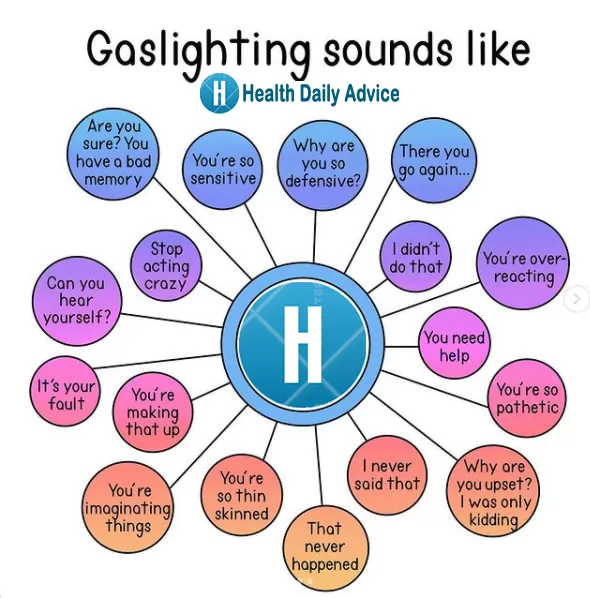Introduction
Exploring the subtle yet impactful dynamics of gaslighting is crucial in recognizing and addressing psychological abuse. This post sheds light on 8 examples of what gaslighting sounds like, offering a deeper understanding of this pervasive issue. Gaslighting, a form of verbal and psychological abuse, is unfortunately common in society. However, its contemporary usage has sometimes led to confusion and misunderstanding. It’s essential to differentiate genuine instances from casual references to maintain the integrity of the term.
Gaslighting comes in various forms, including diversion, countering, blame-shifting, trivializing, denial, withholding, discrediting, and stereotyping. Understanding these manipulation techniques is vital for individuals who may be unknowingly subjected to such behavior.
8 Examples of What Gaslighting Sounds Like
1. Diversion:
Are you even sure about this? We all know you have a bad memory. Remember that time when you got things wrong?
2. Countering:
No, that didn’t happen. You’re just crazy. What happened was (invents new scenario out of thin air).
3. Blame-shifting:
So what if you have proof? It means nothing because you didn’t consider my side and my feelings. You’re the bad guy here!
4. Trivializing:
Why are you so concerned about it? It’s such a small thing. Stop being so dramatic and deal with it.
5. Denial:
Even if that’s true, the fact is that I forgot. What else do you want from me? I don’t have a perfect memory; I’m only human.
6. Withholding:
No, I know you’re just trying to confuse me and everyone else. Stop lying, we all know why you’re doing this, so just stop talking.
7. Discrediting:
The gaslighter talking to your friends: “(Your name) is such a liar, here are all the horrible things they’ve done to me. Don’t believe anything they say.
8. Stereotyping:
You know, she’s a woman and you know how women can be. Sometimes she gets a little bit emotional and irrational.
Understanding Gaslighting Beyond Lies
Gaslighting goes beyond mere falsehoods; it’s a form of psychological abuse aimed at discrediting and disempowering individuals. If you find yourself a victim of gaslighting, remember that you aren’t ‘crazy,’ and it’s not ‘all in your head.’ The best course of action is to distance yourself from the gaslighter and minimize contact as much as possible.
Frequently Asked Questions (FAQs)
Gaslighting is a form of psychological manipulation where one person seeks to make another person doubt their own perceptions, memories, or sanity. It often involves denying or distorting reality to gain control over the victim.
Gaslighting often involves tactics such as denial of facts, minimizing feelings, shifting blame, and twisting the truth. Pay attention to consistent patterns of manipulation, invalidation, and attempts to make you question your own reality.
Gaslighting is often a tactic used by individuals who seek to control or dominate others. It can be driven by a desire for power, manipulation, or to avoid taking responsibility for their actions.
Gaslighting can have severe emotional and psychological effects on the victim, including self-doubt, anxiety, depression, and a distorted sense of reality. It can erode a person’s confidence and lead to a loss of trust in their own perceptions.
Recognizing gaslighting is the first step. Trust your feelings and perceptions. Establish boundaries and assertively communicate your needs. Seek support from friends, family, or a mental health professional. If the gaslighting is occurring in a relationship, consider seeking assistance from a therapist or counselor.
Conclusion:
Gaslighting is a serious issue that requires awareness and understanding. By recognizing the manipulation techniques involved, individuals can empower themselves to break free from this form of abuse. Share your experiences and insights in the comments, contributing to a supportive community that fosters mental health.
Note:
For more insightful articles on mental health, stay connected with our site: Health Daily Advice. Explore additional resources at Newport Institute for the latest information on mental health. If you found this article helpful, share your experiences and help create a community that prioritizes mental well-being.













